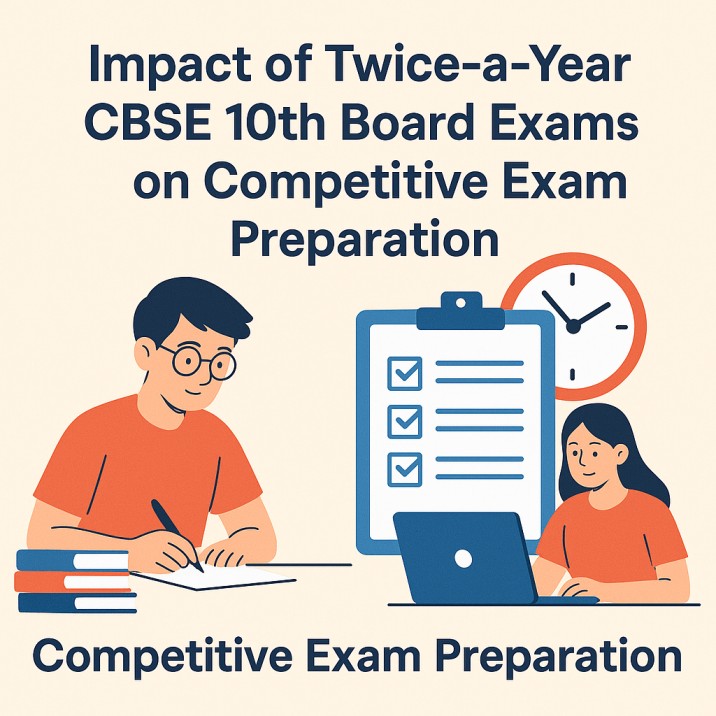
By 2025, the Class 10 board exams will be conducted twice a year which is a new policy introduced by the Central Board of Secondary Education (CBSE). The new policy aims to provide multiple chances for improvement, ensure better calculation of competencies, and lessen overall exam related stress. Although the change is largely positive, many wonder how it will affect the preparation strategy for competitive exams such as JEE, NEET and Olympiads.
In the scope of meeting global standards, this will also help integrate the functioning of CBSE to global exam standards where multiple windows for examinations is the norm and help students get used to the competing environment where multiple attempts are the norm.
The majority of students find it difficult to cope with the stress that accompanies a singular exam attempt. The new format permits students to compartmentalize their preparation. With divided stress, students can better work towards long-term targets, be it JEE or NEET.
Use Discipline to Your Advantage – The same discipline and strategies used for competitive exams can be applied to board preparation as well.
Master NCERT – Doing well in both board and competitive exams would stem from mastering the NCERT textbooks. This is because the textbooks would serve as the foundation.
Take Mock Tests Regularly - Attempting both board and competitive exams mock tests will enhance speed, accuracy, and confidence.
Stay Consistent - Consistent short study sessions are more beneficial than one long last minute study session.
The introduction of twicw-a-year CBSE Class 10 board exams is an encouraging change that can help reduce student’s stress and also provide them ample opportunities to improve upon their previous attempts. This is also an advantage for those who wish to appear for competitive exams, as it allows to develop a sound foundation and get accustomed to the exam’s environment. Success, however, still remains contingent on a balanced approach and efficient time allocation. Students can now take advantage of the newly implemented system and with adequate foresight, keep pace with their aspirations of tackling competitive exams.
FAQs
Q1. Will the exam CBSE board exam given twice a year reduce student pressure?
Yes. The system is specifically designed to reduce the stress of taking the exam as there are two opportunities for the student to take the test and the best score can be retained.
Q2. Will this help with the JEE and NEET prep?
This can help as students are bound to revise the concepts twice, however, the prep for the competitive exam should be of equal priority and time allocation must be balanced.
Q3. Is it advised to take both sessions or just one?
The approach of taking both sessions is advocated. The first attempt can be purely practice and then the second attempt can be used as an improvement attempt.
Q4. Are NCERT books sufficient for balancing both the boards and competitive exams?
Yes, NCERT books are pivotal for both the examinations. Though for JEE and NEET, extra practice and reference books will be necessary.